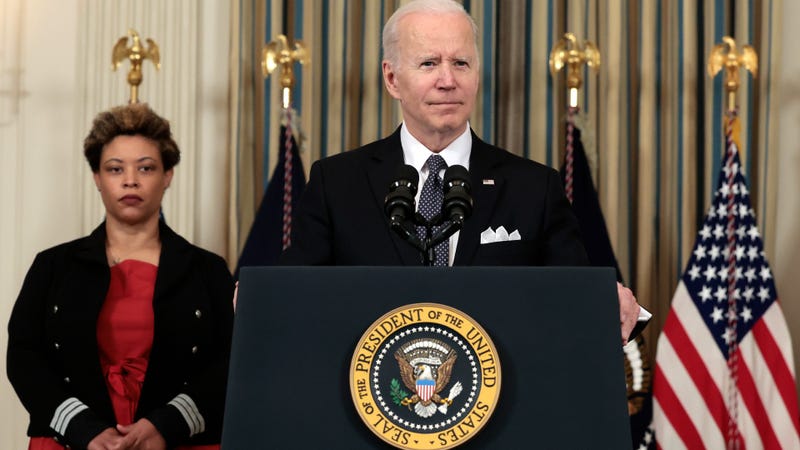
The budget proposal released by President Joe Biden Monday adds 10.5% to the Department of Veterans Affairs FY 2023, pushing it to $300 billion.
“This budget delivers critical resources to help VA serve veterans, their families, caregivers, and survivors as well as they have served our country,” VA Secretary Denis McDonough said in a statement. “It will allow VA to continue providing more care, more services, and more benefits to more veterans than any time in its history.”
Over half of the $300 billion proposal is mandatory spending earmarked for entitlement programs. As such, it does not go through the appropriations process in Congress.
The president’s budget request for VA includes:
- $122.7 billion (with collections), 21.3% above the 2022 enacted budget, to meet the medical needs of veterans.
- $13.9 billion for VA mental health care.
- $497 million to support the Biden administration’s veteran suicide prevention initiatives, including implementation of the Veterans Crisis Line’s 988 expansion.
- $9.8 billion for women veterans’ health care, including $767 million for women’s gender-specific care.
- $81 million in research and $167 million for cancer care.
The proposal also ups caregiver funding by $433 million and adds $410 million to homelessness programs.
The budget also increases resources for hiring additional claims processors and advancing claims automation and modernization efforts to speed processing new presumptive disability compensation claims related to environmental exposures during military service.
“We’re putting additional resources into hiring more people, more technology, more automation — substantial investments,” said Assistant Secretary of Management and CFO of the VA Jon Rychalski.
It also invests $51 million within VA research programs and $63 million within the VA medical care program to increase scientific understanding of and clinical support for veterans and health care providers regarding the potential adverse impacts from environmental exposures during military service.
The budget sets aside $805 million for major construction projects at VA medical centers in Portland, Oregon; Canandaigua, New York, and Fort Harrison, Montana. Minor construction projects at 10 other facilities would receive $163 million.

Chief Financial Officer of the Veterans Health Administration Laura Duke said to estimate demand for health care the VA uses modeling that is similar to that used by insurance companies.
“Increased costs are driven by the pandemic, people who have waited on health care, or may come back sicker,” she said. “And honestly, the model is just leading us to believe that we are looking at a fairly expensive year in 2023.”
Democrats were quick to applaud the budget proposal.
“Living up to the promises made to our nation’s veterans and their families starts with making sure VA has the resources to meet their growing needs,” said Sen. Jon Tester, (D-Mont.), chairman of the Senate Veterans’ Affairs Committee. “We’ve got to see to it that taxpayer dollars are spent responsibly and in a way that best serves our veterans.”
Chairman of the House Committee on Veterans’ Affairs Rep. Mark Takano (D-Calif.) also praised the budget proposal, particularly the additional $20 million for burn pit exposure research,
“We have a lot of work ahead, but it’s clear to me that President Biden, Secretary McDonough, and I share many of the same priorities,” he said in a statement. “I look forward to continuing to work together to serve all those who have served.”
Burn pits exposure benefit legislation is currently being negotiated by Congress. The budget proposal does not include money to pay for it.
In all, Biden’s budget proposal amounts to $5.8 trillion. It also calls for additional military spending and a new minimum tax on billionaires.
Visit VA Budget Office or FY 2023 Budget for more information.
Reach Julia LeDoux at Julia@connectingvets.com.



